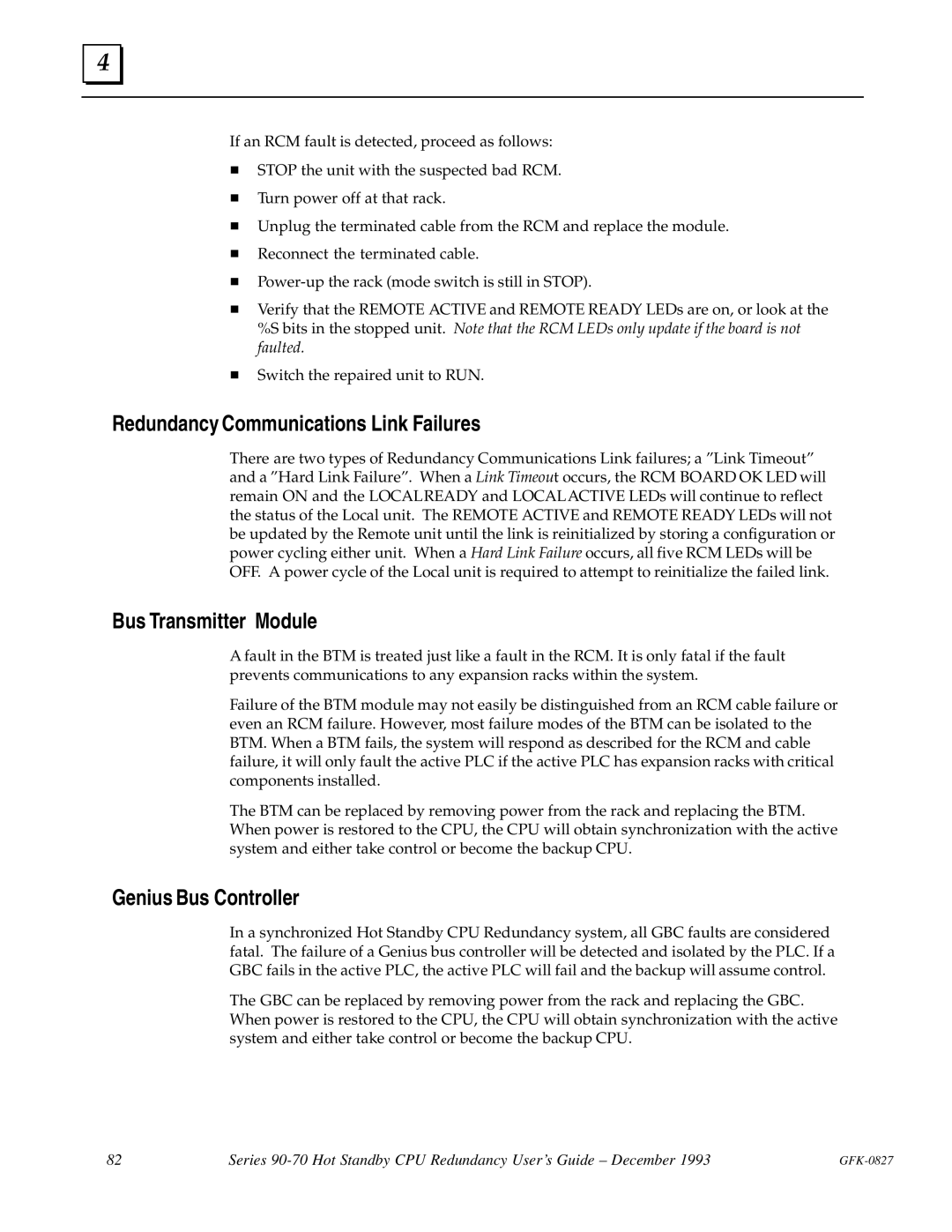4 |
If an RCM fault is detected, proceed as follows:
HSTOP the unit with the suspected bad RCM.
HTurn power off at that rack.
HUnplug the terminated cable from the RCM and replace the module.
HReconnect the terminated cable.
H
HVerify that the REMOTE ACTIVE and REMOTE READY LEDs are on, or look at the %S bits in the stopped unit. Note that the RCM LEDs only update if the board is not faulted.
HSwitch the repaired unit to RUN.
Redundancy Communications Link Failures
There are two types of Redundancy Communications Link failures; a ºLink Timeoutº and a ºHard Link Failureº. When a Link Timeout occurs, the RCM BOARD OK LED will remain ON and the LOCALREADY and LOCALACTIVE LEDs will continue to reflect the status of the Local unit. The REMOTE ACTIVE and REMOTE READY LEDs will not be updated by the Remote unit until the link is reinitialized by storing a configuration or power cycling either unit. When a Hard Link Failure occurs, all five RCM LEDs will be OFF. A power cycle of the Local unit is required to attempt to reinitialize the failed link.
Bus Transmitter Module
A fault in the BTM is treated just like a fault in the RCM. It is only fatal if the fault prevents communications to any expansion racks within the system.
Failure of the BTM module may not easily be distinguished from an RCM cable failure or even an RCM failure. However, most failure modes of the BTM can be isolated to the BTM. When a BTM fails, the system will respond as described for the RCM and cable failure, it will only fault the active PLC if the active PLC has expansion racks with critical components installed.
The BTM can be replaced by removing power from the rack and replacing the BTM. When power is restored to the CPU, the CPU will obtain synchronization with the active system and either take control or become the backup CPU.
Genius Bus Controller
In a synchronized Hot Standby CPU Redundancy system, all GBC faults are considered fatal. The failure of a Genius bus controller will be detected and isolated by the PLC. If a GBC fails in the active PLC, the active PLC will fail and the backup will assume control.
The GBC can be replaced by removing power from the rack and replacing the GBC. When power is restored to the CPU, the CPU will obtain synchronization with the active system and either take control or become the backup CPU.
82 | Series |
|
